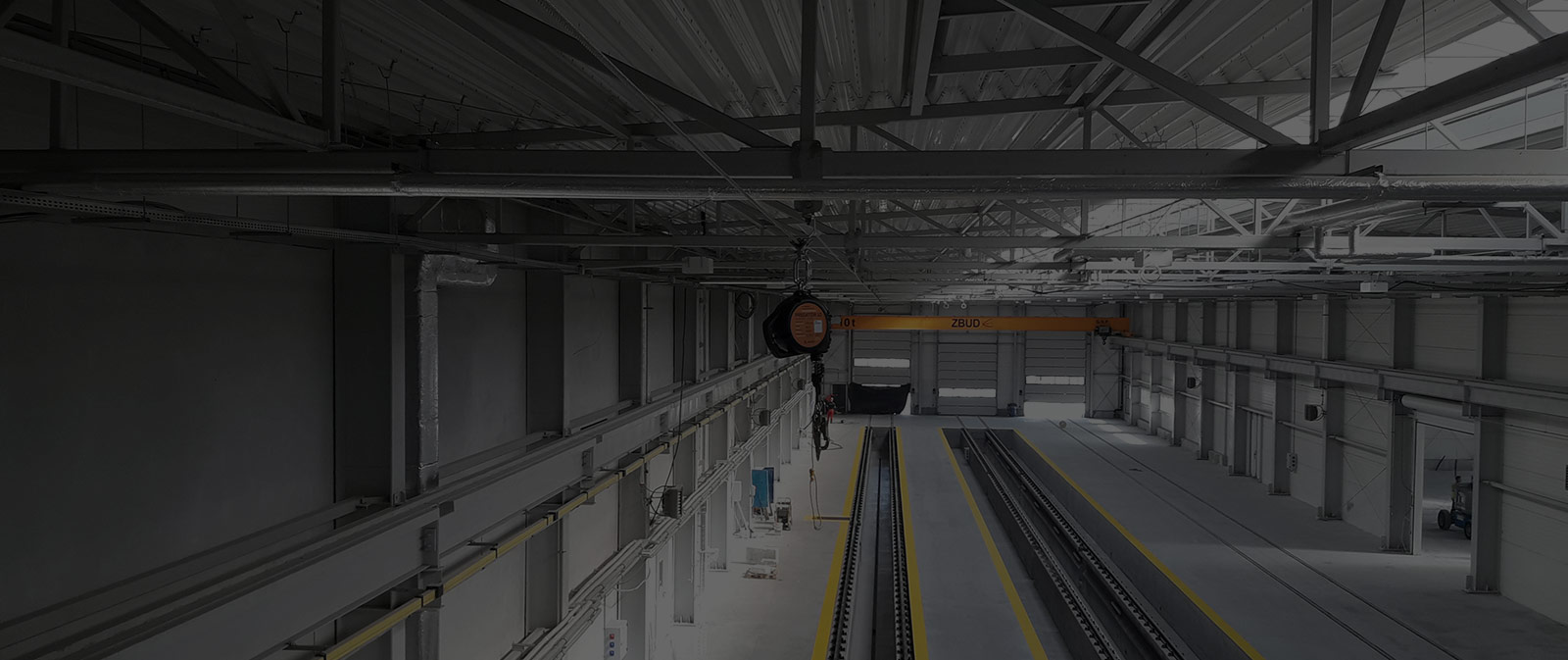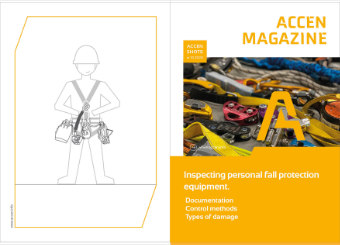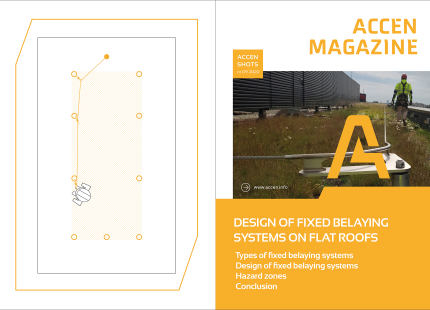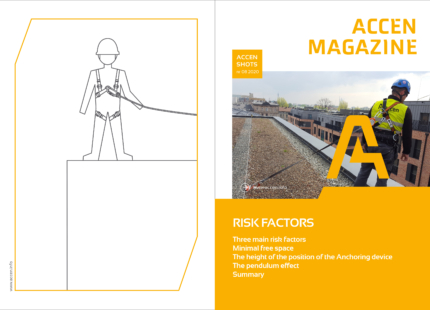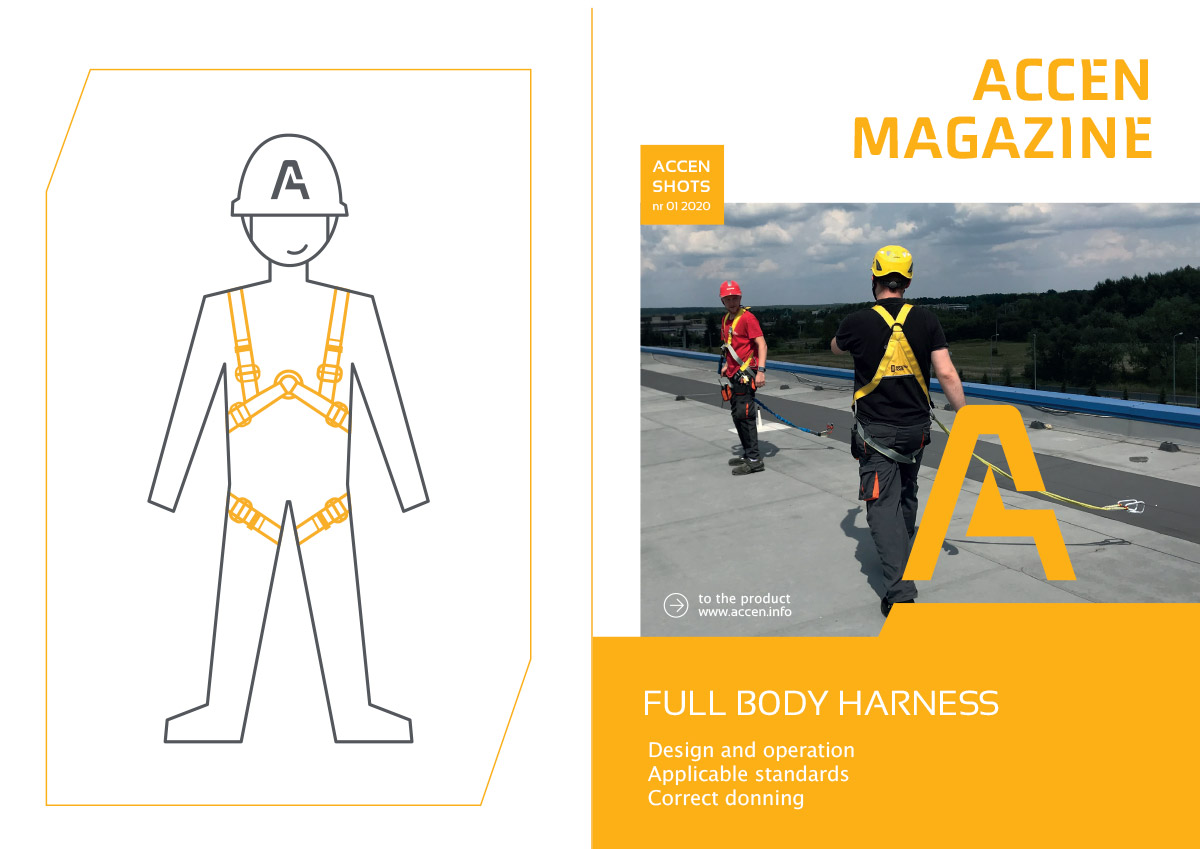
Full Body Harness
Personal protective equipment, such as safety harness, is an essential piece of equipment to prevent falls from a height that are in direct contact with the human body. Safety harnesses are a type of harness with a special design that allows you to ensure the safety of a person when braking the fall. In accordance with European regulations, the safety harness must meet the requirements of the EN 361, which specifies technical and functional requirements for them.
How do safety harnesses work?
The construction of the harness allows for the distribution of dynamic forces acting on the human body when stopping the fall, in a way that reduces the risk of injury. In addition, they give the human body the right position when breaking fall to avoid damage to internal organs and the spine. Once the fall has been stopped, they position the user appropriately to allow safe and (if possible) comfortable waiting for help.
How are safety harnesses built?
Adjustable straps.
Structurally, the safety harness must have adjustable shoulder straps connected to the leg straps. The adjustment of the straps gives the possibility to adjust the harness to the user’s figure, thus ensuring safety during use.
Adjustable safety harness
Attachment point.
An important element is the attachment point, which must be located on the back and is called dorsal, in addition, the harness can be equipped with a front attachment point called chest. Each of these points must be marked with a capital letter A.
Only such an attachment point in safety harnesses can be used to attach the connecting and damping subassembly.

Attachment points for the attachment of the connecting and damping subassembly –
chest and dorsal – letter A.
How are safety harnesses built?
Safety harness with hip pad.
The safety harness can be additionally equipped with a hip pad for positioning during work in accordance with EN 358.
The pad has two buckles located on the sides for strap attachment. Thanks to this configuration it is possible to work in a supported position.

Safety harness for work at height with a hip pad.
Another additional construction variant of the safety harness is a hip harness made in accordance with EN 813 allowing for suspension work. This makes it possible to work with rope access techniques.

Safety harness with hip harness for suspension work.
Safety harnesses may also have other additional elements enabling their use in fall protection systems.
Fall protection system. Standards.
When using individual fall protection systems, one of the components is always a harness according to EN 361. They can be attached to an anchor device (EN 795) with one of the three connection and damping subassemblies: an energy absorber (EN 355) with a safety rope (EN 354), a self-locking device (EN 360) or a guided self-locking device (EN 353-2).
How to use a safety harness?
The use of safety harnesses shall be in accordance with the provisions of the manufacturer’s manual and all information concerning periodic inspections shall be recorded in the inspection report. Before each use, the harness must be visually inspected for any visible damage and at least every 12 months inspected by a person competent in this field. The safety harness can only perform its function properly if it is used for its intended purpose, the indications in the user manual are observed and it is in a proper technical condition with regular maintenance.
When should the harness be replaced?
The harness, as a personal fall protection device, must be taken out of service and removed, i.e. permanently destroyed, if it was involved in breaking the fall, regardless of whether or not it was damaged.
How to put on a safety harness?


